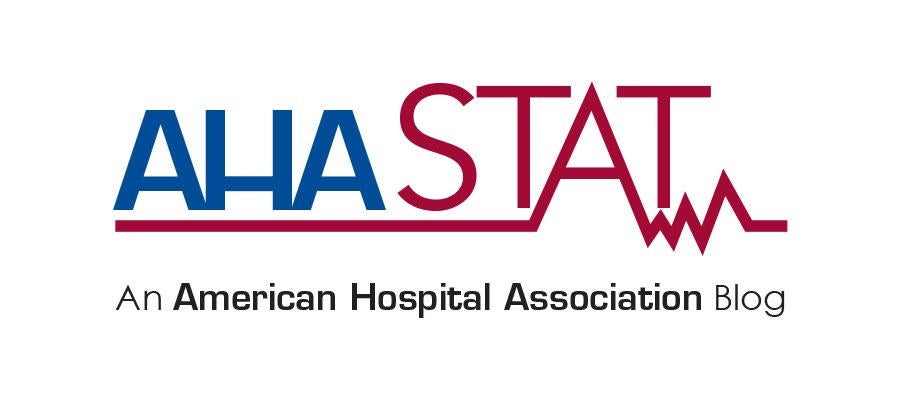Kids Deserve our Best: What the WSJ Got Wrong about Pediatric Readiness

A recent article in the Wall Street Journal wants you to believe that many of our nation’s emergency departments are incapable of caring for children.
As a pediatrician, health system leader and a parent, I want you to know that is not true. The truth is as simple as this: Hospitals and the caregivers inside them are committed to providing safe and high-quality care for kids and our EDs are prepared to treat them.
What that care looks like and how it is delivered will vary depending on the community you are in, where you are treated and the immediate resources of that facility. That doesn’t change the fact that I would feel comfortable bringing my children to an ED and you should too. The AHA, along with other pediatric leaders, shared why we feel this way with the Journal. Since they chose not to share most or any of our thoughts with you, I will share them with you here:
Emergency Department Doctors Receive Pediatric Training
Looking at the story’s headline you wouldn’t know that pediatrics is actually a core aspect of training and board certification for both emergency medicine and family medicine physicians – the specialists who staff many if not most EDs. Of course, both pediatricians and pediatric emergency medicine specialists generally have more pediatric training, but to give the impression that other providers have none or do not know how to use the training they received is inaccurate.
Emergency Medicine Exists to Treat Emergencies
This point may seem obvious but it’s important to remember that the purpose of EDs are to screen, stabilize, and either treat or transfer patients to a higher level of care. EDs handle over 135 million visits a year so the mix of “transfer versus treat” is going to vary across the spectrum of EDs and specialties. The same is true for pediatrics. In a perfect world this would all work seamlessly and most of the time it does, but as we all know we ask a lot of our EDs. Their 24/7 availability is a comfort for us but that also means they end up as the health care catch all for a community, especially in rural America where health care access can be geographically limited. EDs also are too often a medical safety net of last resort for the uninsured, and sadly these days, the only safe place to stay for patients – including children – experiencing a behavioral health crisis.
Pediatrics is a Specialty and is Treated as Such
Children are not little adults. Health care professionals understand this truth, which is why highly acute pediatric emergencies require high-level specialty care just like adults do who experience trauma or burns. It’s not unreasonable to assume that when it comes to pediatrics, many of the senior-most specialists in the field would practice at a specialty children’s hospital. Children’s hospitals and dedicated children’s EDs are important parts of our health care ecosystem. They create an environment that brings together highly-trained specialists and resources to practice at scale with the volume of patients needed to sustain it. That said, these are not the only places where children can access specialists or be treated appropriately, which is why the Journal’s analysis is especially troubling. You don’t have to be a doctor to realize that comparing a rural stand-alone ED to a dedicated children’s ED at a state-of-the-art children’s hospital is not just flawed but unfair. Simply put, labeling any center that doesn’t match all the services offered at the most state-of-the-art providers as “unprepared for children” is nonsensical at best, and dangerous at worst.
It is hard to imagine a time – even if we ignore our current health care workforce crisis – when we would have enough specialty physicians (neonatologists, pediatric trauma surgeons, pediatric emergency medicine specialists, etc.) to allow for even one at every ED in the country. And were that even possible, the volume of patients needed to support that level of resource and specialty expertise in every ED does not exist. This is why children’s hospitals and other specialty centers invest heavily in a regionalized approach to extend their reach beyond their physical walls. Whether by rotating specialists through critical access hospitals and EDs or projecting their experience into rural areas through telemedicine, regionalized care allows hospitals and health systems to extend the highest trained teams into communities when they need them.
The Bottom Line
Let’s be clear – America’s hospitals and health systems are committed to continually improving the care we provide for our communities, and that includes caring for kids. Implying that hundreds of thousands of health care professionals working in our EDs – many of them parents themselves – don’t care about treating kids is just wrong. Even worse, arguing they don’t prioritize that care because treating children makes less money is insulting. I’ve spent most of my adult life as a pediatric specialist and leader with health systems. I have seen firsthand the dedication these professionals have to all patients and have been the person called by the ED when a child presents in crisis. Those caregivers care about kids. They deserve better and so do you.
Chris DeRienzo, M.D., is chief physician executive for the American Hospital Association. Dr. DeRienzo is a board-certified pediatrician and neonatologist.

